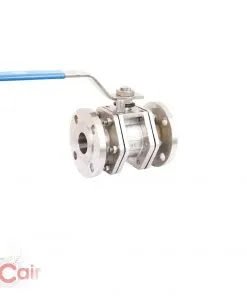Regarding controlling the flow of liquids and gases in industrial settings, ball valves are popular among engineers and facility managers. These valves feature a spherical plug that can rotate inside a cylindrical body, allowing precise and efficient flow control.
However, not all ball valves are created equal. Choosing the right ball valve supplier is crucial for ensuring that the valves you use in your facility are of the highest quality, reliable, and suitable for your specific application.
Quality and Reliability
One of the most important factors to consider when choosing a ball valve supplier is the quality of the valves they provide. Cheap, low-quality valves may seem like a good deal at first, but they are likely to break or malfunction more frequently, leading to costly downtime and repairs.
Reputable ball valve suppliers will use high-quality materials, such as stainless steel and brass, and utilize precision manufacturing techniques to ensure that their valves are durable and reliable.
Wide Range of Products
Another factor to consider is the range of products offered by the supplier. Different industrial applications have unique requirements, and a supplier who can provide a variety of valve sizes, types and styles are more likely to have the right valve for your needs. A ball valve supplier should have a wide range of options, such as full-port, regular-port, reduced-port, high-pressure, low-pressure, and more.
Compliance with Industry Standards
Ball valves are subject to many industry standards, such as those established by organizations like the American Society of Mechanical Engineers (ASME) and the American Petroleum Institute (API). Choosing a ball valve supplier that complies with these standards is important for ensuring that the valves you receive meet the necessary safety and performance requirements for your application.
Customization Capabilities
In addition to a wide range of products, some industrial applications may also require customized solutions. For example, a ball valve may need to be modified to handle a specific pressure, temperature, or media. A supplier that can customize valves to meet specific requirements can be a major asset to your business.
Technical Support
Even the best ball valves may need maintenance or repairs from time to time. It's important to choose a supplier that provides technical support and can answer any questions or concerns you may have. A supplier that offers installation, maintenance, and repair services can save time and money in the long run.
Competitive Pricing
While choosing a high-quality ball valve supplier is important, it's also important to consider the cost. Shop around and compare prices from different suppliers to find the best value for your money. However, remember that the cheapest option may not always be the best. Sometimes, paying a little more for a high-quality valve from a reputable supplier can save you money in the long run by avoiding costly repairs and downtime.
In conclusion, choosing the right ball valve supplier is crucial for ensuring that your facility has reliable, high-quality valves that meet your needs. Careful consideration of factors such as quality and reliability, range of products, compliance with industry standards, customization capabilities, technical support, and competitive pricing can help you make an informed decision.

Comments
Post a Comment